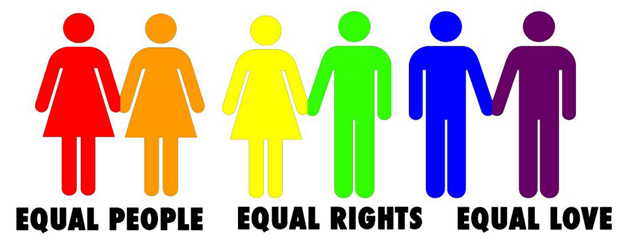LGBT Rights: To Be, Or Not to Be

“Ravi (name changed) came out a few weeks before the Supreme Court judgement. He informed his parents that he was a homosexual. His parents were shocked but gradually started to come to terms with his sexuality. It was all working out when suddenly a judgement came out of thin air. His life was shattered. He was a criminal in the eyes of the law. After hearing the news his mother said: “Ab toh Supreme Court tujhe criminal manta hai, ab sudarja.” ( now the Supreme Court recognises you as a criminal now, at least now you should change).
A year after the re-criminalization of homosexuality, the basic fundamental rights of LGBTs (Lesbian, Gay, Bisexual and Transgender) have come under threat. In December 2013, the Supreme Court of India recriminalized homosexuality through the Suresh Kumar Kaushal judgment by upholding Section 377 of the Indian Penal Code.
After the Supreme Court order of December 2013, things changed drastically for LGBTs. Their day to day life is hampered in unimaginable ways. Living under constant fear of legal and societal repercussions, they have in a way silenced themselves for survival.
“I now hesitate to speak of my sexuality to people I meet, fearing they might use this knowledge to cause harm to me. I think the December 2013 judgement has discouraged many people from coming out openly about their sexuality and so pushed back the acceptance that would have gradually made way into the society. The re-criminalisation hampered the small social acceptability we had managed to get because the law turned against us. From what I have seen, most non-LGBT people see the LGBT as either a distant minority or a myth, hence treating their basic rights with least concern.” Says Pawan (name changed)
Pawan, an architecture student believes that if more homosexuals come out openly about their sexuality, society will be forced to recognise, accept the “humanness of a gay persons” which would eventually provoke the people to think about gay rights.
Rafiul Alam, a literature student who is also a member of Delhi University’s Queer Collective, a student support group says “the violence against LGBTs is not necessarily physical, in India it is more diffused, it is psychological. Here you have a family which creates a certain amount of pressure on the person, forces them to marry a heterosexual even when their sexual preferences are homosexual. The constant pressure of not being out and not being identified as who you actually are takes a toll on the psyche.”
Student movements like the DUQueer Collective, Ambedkar University Queer Collective et al provide a vital peer support for the LGBT community. Such student groups have helped to create a platform where college and university students can at least discuss the problems faced by LGBTs.
Gabriel (name changed), a freelance journalist feels positive about student movements and thinks they have played a role to oppose the status quo. He says: “The very fact that BJP or any other party shudders from making a statement against LGBTQ is because the movement is now present a little, if not substantially, at the grass root level. There is a growing sensibility and a discourse of acceptance at university spaces and in progressive fronts. One can be sure of inviting public wrath if he/she makes statement which demean the status of LGBTQ in society. This is of course positive. However, a lot more needs to be done too. These movements have not even exhausted the privileged spaces in which they exist to move out into the society for proactive activism. So, things are still very micro yet.”


